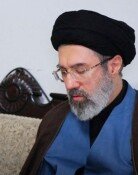US Secretary of Defense says it will take some time to meet OPCON transition conditions
US Secretary of Defense says it will take some time to meet OPCON transition conditions
Posted March. 19, 2021 07:35,
Updated March. 19, 2021 07:35
“While meeting all the conditions for this transition will take more time, I am confident that this process will strengthen our alliance,” U.S. Secretary of Defense Lloyd Austin said at a joint press conference immediately following the ROK-U.S. Foreign and Defense Ministerial on Thursday.
He confirmed again that the transition of the wartime operational control (OPCON) needs to be pursued based on conditions initially agreed upon by the two countries. “The alliance has made coordinated efforts to reach the conditions for a successful OPCON transition and agreed to continue to cooperate for OPCON transition,” the joint statement of the Thursday meeting also says.
“It was a reconfirmation that the South Korean military will not force OPCON transition at a certain timing while the conditions are not fully met,” said a military source. The three major conditions for OPCON transition are the South Korean military’s capabilities to lead the joint defense, response capabilities to North Korea’s nuclear weapons and missiles, and a security environment suitable for OPCON transition on the Korean Peninsula and in the region.
Such a stance of the U.S. was signaled at the ROK-U.S. Defense Minister meeting held on Wednesday at the office of the Ministry of National Defense in Yongsan, Seoul. It was reported that South Korean Minister of National Defense Seo Wook spent most of the time during an hour-long meeting explaining the need to accelerate the OPCON transition. However, Secretary Austin remained silent and listened while Robert B. Abrams, the commander of United Nations Command and commander of R.O.K.-U.S. Combined Forces Command, mentioned the importance of meeting the conditions.
“Future training plans and other developments will be decided jointly by South Korea and the U.S. and we will continue to cooperate with the South Korean command,” Secretary Austin said to a question regarding the normalization of combined training, which has been reduced for four year due to denuclearization negotiations between the U.S. and North Korea, etc. “Readiness posture is the top priority for both South Korea and the U.S.,” he emphasized. Some believe that his comment signals a determination that combined training will not be used as a bargaining chip for negotiations with the North, unlike the Trump administration.
Sang-Ho Yun ysh1005@donga.com







